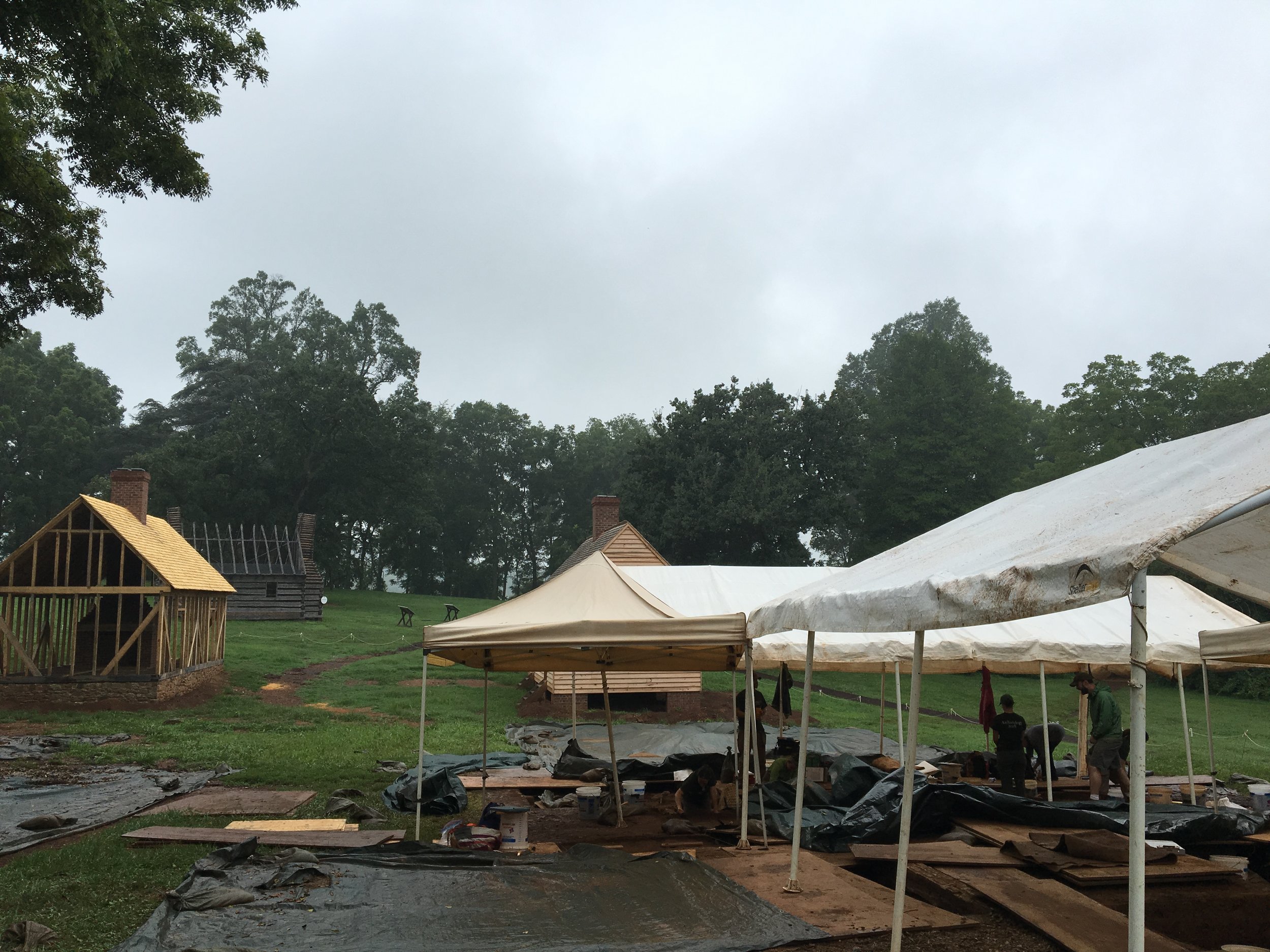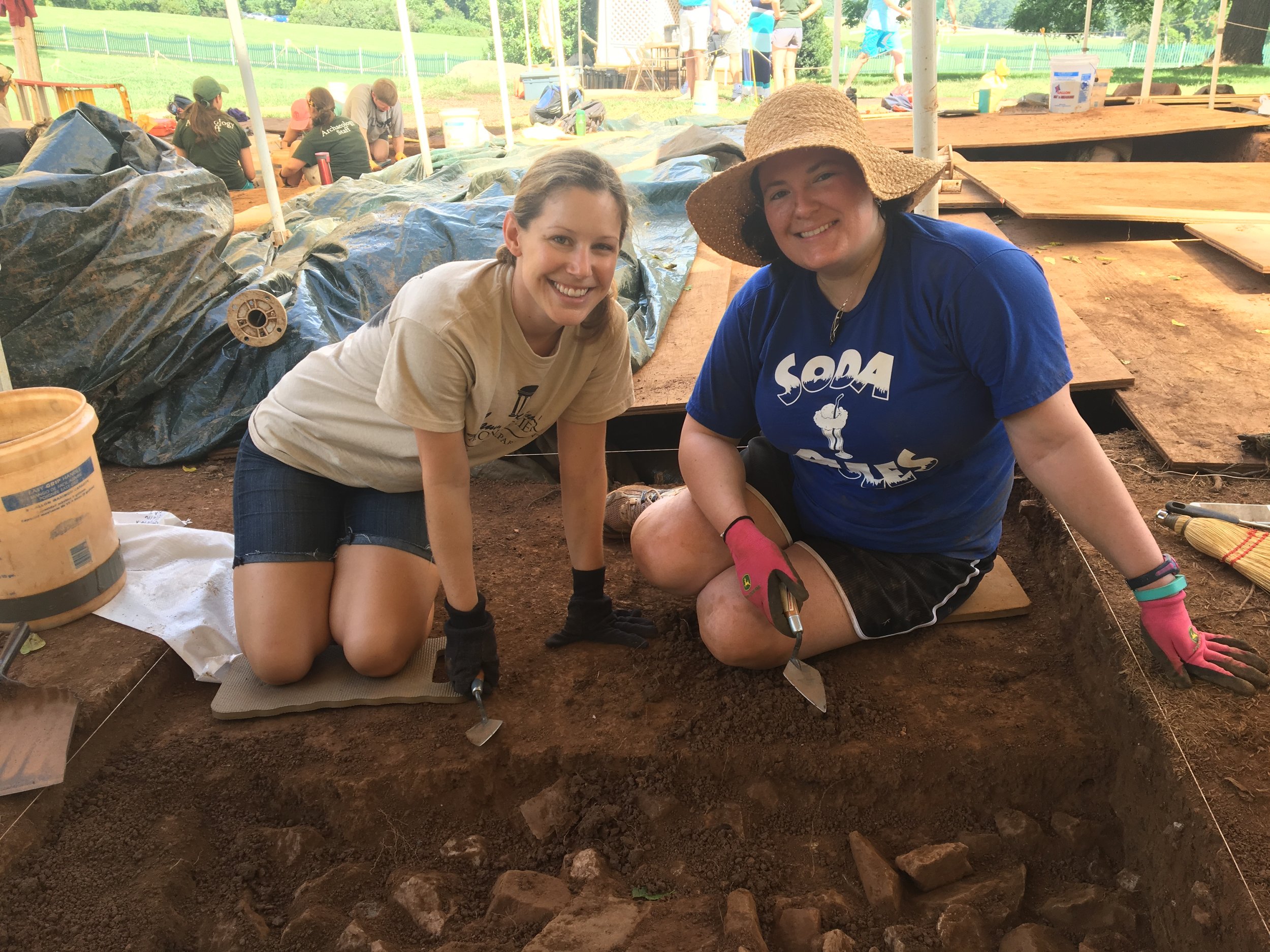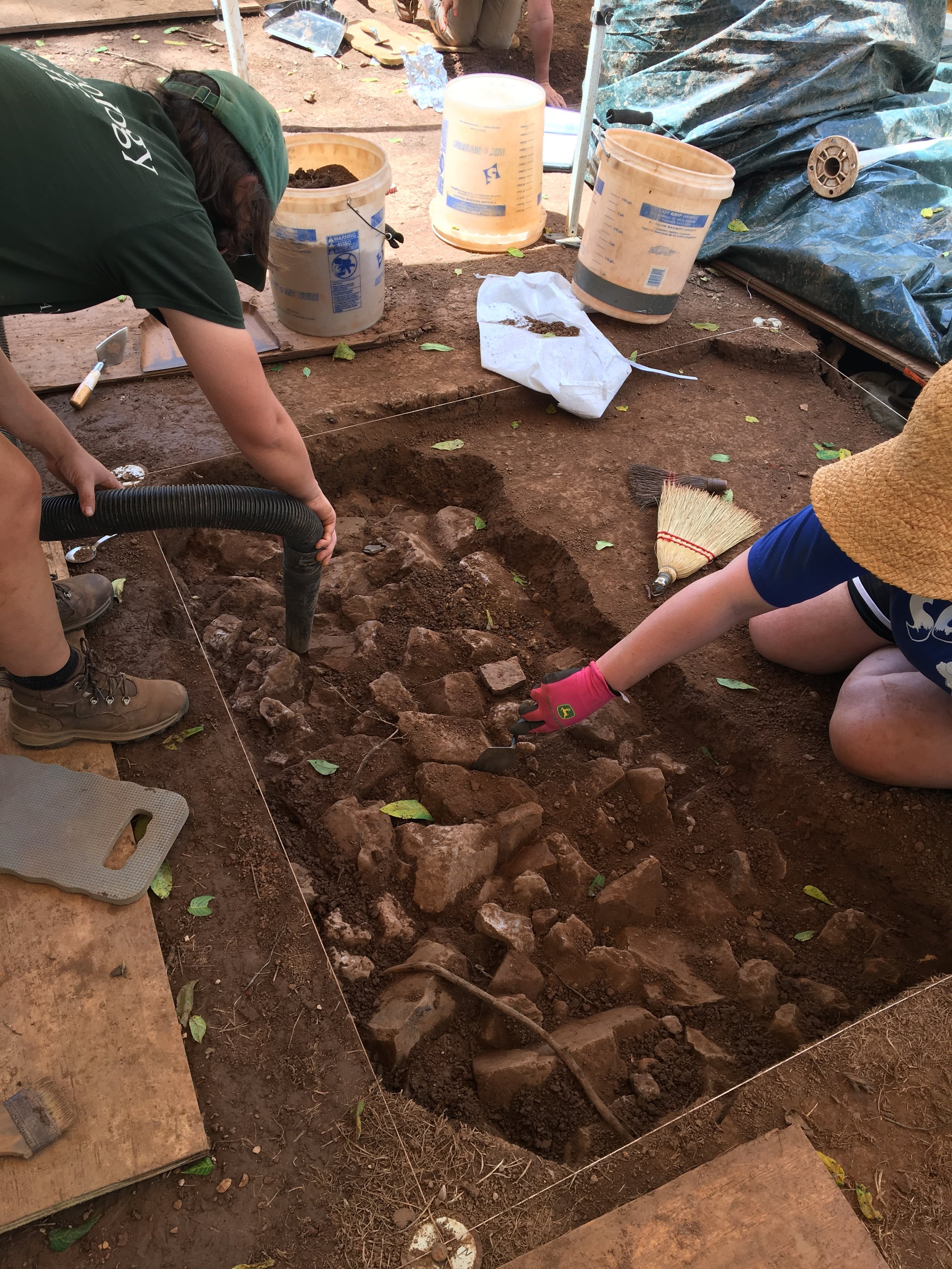Thank you to Mass Poetry for talking with me about my chapbook I ALMOST WAS ANIMAL and what I’ve been up to these days! Check out the interview here.
News
2018 was a lucky and joyful year for me, filled with a handful of finalist nods, the birth of my son Theodore in August, and two book acceptances in December!
My chapbook I Almost was Animal won the 2018 WaterSedge Poetry Chapbook Prize hosted by Writer’s Relief and has just been published through Amazon. It has been such a cool experience working on it with the teams at Writer’s Relief and at Amazon, and it was a particularly cool moment when Amazon sent me an email suggesting to me that I might like my own book.
My full-length manuscript Somewhere to Go won the 19th annual Poetry Awards from Elixir Press and is due out later this year.
Both of these collections are comprised of poems I’ve been writing, revising, and compiling for the better half of a decade, and amazingly they were accepted at a time I’d almost resigned myself to the idea that they may never see the light of day.
I’m so grateful to so many people for their support and friendship that helped me create these books and get them out into the world, and I’ll be telling them so in the pages of Somewhere to Go. But I’d like to just say now a thanks to a couple of the key organizations and friends who helped me with them—in particular friend and mentor Fred Marchant, Colrain faculty Joan Houlihan and Peter Covino, and magical friend and poem-intuiter Hannah Larrabee. Also, many of the poems in these books were sparked when I was a resident at the Noepe Center’s Martha’s Vineyard Writer’s Residency, run by the wonderful Justen Ahren. I would be a very different writer had I not spent time there, and I’m so grateful to have had that opportunity.
I Almost was Animal is available here (or as an e-book here). More to come!
LEARNING TO DIG IT
Out in the field with Montpelier Senior Research Archaeologist Terry Brock and my volunteer partner Emily
This August I volunteered for a week with the archaeology team at James Madison's Montpelier in Orange, Virginia. It was a beautiful area and an especially gorgeous estate. I'd never been there, and to be honest, don't remember learning much about Madison in school, outside of the fact that he is the "father of the Constitution," so it was an especially interesting sensation to be learning a lot about him as I literally went digging around in his backyard.
I minored in cultural anthropology and have always loved anthropology, history, and archaeology, but never knew people could volunteer for digs until Chris gave me A Practical Handbook of Archaeology (and that little slice of lovely information) for my 32nd birthday. So I looked into it, found this opportunity with Montpelier, and registered.
The volunteer opportunity is part of their public archaeology program, and the goals are pretty similar to most outreach programs. It recalled to me aspects of my job at Mass Poetry--not the digging in the dirt part, but the "trying to engage people so they understand that your field is a living, breathing, awesome field" part.
Volunteers spend a week either living on the estate or in the town of Orange, and spend full work days out in the field or in the lab with the archaeology team--a group of some of the kindest, smartest, most passionate people, who were all so patient with the volunteers and welcoming of our millions of questions--my most common question being, "Is this something?" when digging, screening, or sorting, with the most common answer from my field mentor Kara or the lab director Ben being, "That's a rock." (Of course a rock is a thing, but we were looking for bone, ceramic, metal, etc.) :)
I felt bad at first because Kara seemed to have to just watch me and my partner trowel fairly poorly ("We're looking a liiiitle uneven...") in her 5x5 pit and ponder the fact that she could be doing the job much faster. But then she explained to me that the public archaeology program is also part of her job--for a number of weeks, the archaeologists work without volunteers there, and then for a number of weeks, they work with us, teaching us what they do and how to do it.
The South Yard & the main house (slightly warped by iPhone panorama)
What they're doing big-picture is working to bring Madison's fuller story, a fuller story of the plantation and of our nation's history, to light for visitors of the estate. They're working in the South Yard, where the domestic enslaved community lived (meaning the enslaved who did the cooking, cleaning, etc. for the Madison household), and their goal is to understand what the South Yard looked like (how were the structures laid out, what materials were used, where were the hearths, the entrances, etc.), and how it was used, so that it can be rebuilt (and retold) as accurately as possible. Basically, what visitors can't see, visitors can't consider. Reconstruction of the South Yard allows us a more truthful, accurate, and complex picture. (There is a lot to say about that side of the experience--a post for another day.)
On the daily, what the archaeology team is doing is excavating, taking the land down carefully from present day (our current grass and soil) past the "destruction era" (when new buyers of the plantation knocked down the South Yard structures) and finally landing at the soil walked by Madison's enslaved--the "occupation era." (It's in the "destruction" layer of soil that most of the artifacts are found, as the buildings weren't totally cleaned out before they were leveled.)
And to sum up quickly the way it works in the field:
- You trowel. (This is not digging--it's more like scraping, and it makes the loveliest sound.)
- Sometimes you begin to see something cool peering out of the soil. You leave it there and carefully trowel around it layer by layer until it loosens. Congrats, you've just found something cool! It goes into a special bag for the lab (after being admired and Instagrammed). :)
- With a dustpan and brush, you put all the loose soil you've troweled into buckets.
- You dump the full buckets through screens of different sizes to find any artifacts you didn't see earlier. You put them into bags for the lab.
- Repeat.
Sorting
Lab days were also very cool--I was surprised by how much I loved being in the lab. I'd divide the lab into two parts, though there are many more that as a first-timer, I didn't get into! One part is cleaning the artifacts that came in from the field, and though my fingers pruned and whimpered, I enjoyed having what felt like an intimate experience with everything that was found. Cleaning the artifacts, you spend quality time with each one, sort of waking it from its long hibernation. That was special. The other part is sorting. Out in the field, from each layer in each pit, the archaeologists scoop up a bucket of soil that doesn't get screened out there. It comes back to the lab for a special screening process. The results of each of those screenings leads to sorting, where you open up a bunch of bags--whatever made it through the screen of a certain size, and pluck out anything in there that isn't just rock, dirt, etc. Then you make new tiny bags for each thing. Basically you sort things into tiny bags and put those tiny bags into bigger bags, and it sounds insane, but I was obsessed. I kind of want to be a professional sorter, but I don't think that's a thing.
IN ALL, I learned a lot, got dirty, had an identity crisis (why didn't I become an archaeologist?!), and met some cool and inspiring people (hi Matt, hi Terry, hi Kara, hi Ally, hi Ben, hi everyone!). I'd recommend the experience to anyone interested in history or archaeology. They have different expeditions too (like metal detector work, cabin reconstruction, etc.) so probably everyone should just go check it out. :) Here's the website for more info.
Image descriptions on hover when enlarged
Getting My Features On
Recently the lovely Jackie Malone, Mass Poetry's long-time web content director, stepped down from her role, and I was asked to help out. It's with such pleasure that I have a small part to play with Mass Poetry again as the new Features Editor, developing weekly stories and curating Poem of the Moment, which features a weekly poem by a poet with Massachusetts ties.
It's a pleasure for a number of reasons, including:
1) I love Mass Poetry. Simple as that! They bend over backward to take poetry to the people, always thinking on their toes, always pushing themselves toward the best use of their bite-size budget to broaden the audience for poetry, boost the poetic economy in Massachusetts, and support poets. Maybe you've seen their new Raining Poetry program?
2) I get to work with Lauren McCormick, who has been working behind the scenes on Mass Poetry's website for years after being featured at U35. She's an awesome poet and person, and does lots of cool book-related stuff, such as "Like This? Read That" videos. <3 Check her out at Burnt Fiction.
3) I love having the opportunity to feature as many exciting and dynamic poets as possible. Toward that end, we've updated the guidelines for Poem of the Moment, which was a program previously open only to Massachusetts residents with a full-length book. It's now open to poets with a strong and demonstrable tie to Massachusetts who have a chapbook or full-length manuscript. Our goal for Poem of the Moment is that it is a diverse and inclusive program/archive that features emerging poets as well as established. On the docket are Ching-In Chen, David Rivard, Rachel Eliza Griffiths, Annie Won, Clint Smith, and more.
4) Series are fun. Check out the first edition of 10+ Questions--a new series in which we catch up with poets who have appeared in our programming, and stay tuned for an upcoming series on Massachusetts' "literary legacies."
To have the goods delivered to your inbox, sign up for Mass Poetry's weekly email.
#TBW to the Massachusetts poetry festival
I can't wait until tomorrow to #TBT the great long weekend I had at the 2016 Massachusetts Poetry Festival, so #TBW it is! :) It was so good to see my old colleagues and friends, and a pleasure to have the opportunity to experience the festival from the other side--that of a poet and attendee. (It took a while for that to sink in though, and for me to stop running into headquarters to see if anyone needed me to do anything--but I got the hang of it eventually!)
On Saturday I had the honor and extreme pleasure of being the opening act for David Rivard and Charles Simic, my mentors of three years at UNH. Audio excerpts from that reading are posted here. And before that, on Friday, I was part of the Student Day of Poetry, leading the workshop "Get Your Ode On" and sharing a poem at the reading and open mic. I have really missed being in the classroom and working with students, only having led a couple workshops since my time teaching at UNH. These students were inspiring, too, and so interested in poetry. It was a blast sharing poetry with them and hearing their writing. For inspiration we read "Possibilities" by Wislawa Syzmborska, "Ode to Chicken" by Kevin Young, and "Ode to My Blackness" by Evie Shockley. (Had we time, we would have read Neruda's "Ode to My Socks," as well--and so much more!) I'm really excited to be able to share some student work with you. First up: "Ode to a Wonderful Relationship," by Burlington High School senior Timmy Sullivan. Stay tuned for more!
It was a pleasure, too, to see readings and talks by Sandra Beasley, Edward Hirsch, Ocean Vuong, Martha Collins, Richard Blanco, Fred Marchant, David Ferry, Jenny Barber, Marie Howe, Mark Doty, Ada Limón, Greg Pardlo, and so many more--and there are even MORE poets whose wonderful sessions I unfortunately missed--too many to name! That is the tough part of such vibrant festivals with so much to do and see--but that's a nice problem to have. Can't wait till next year!
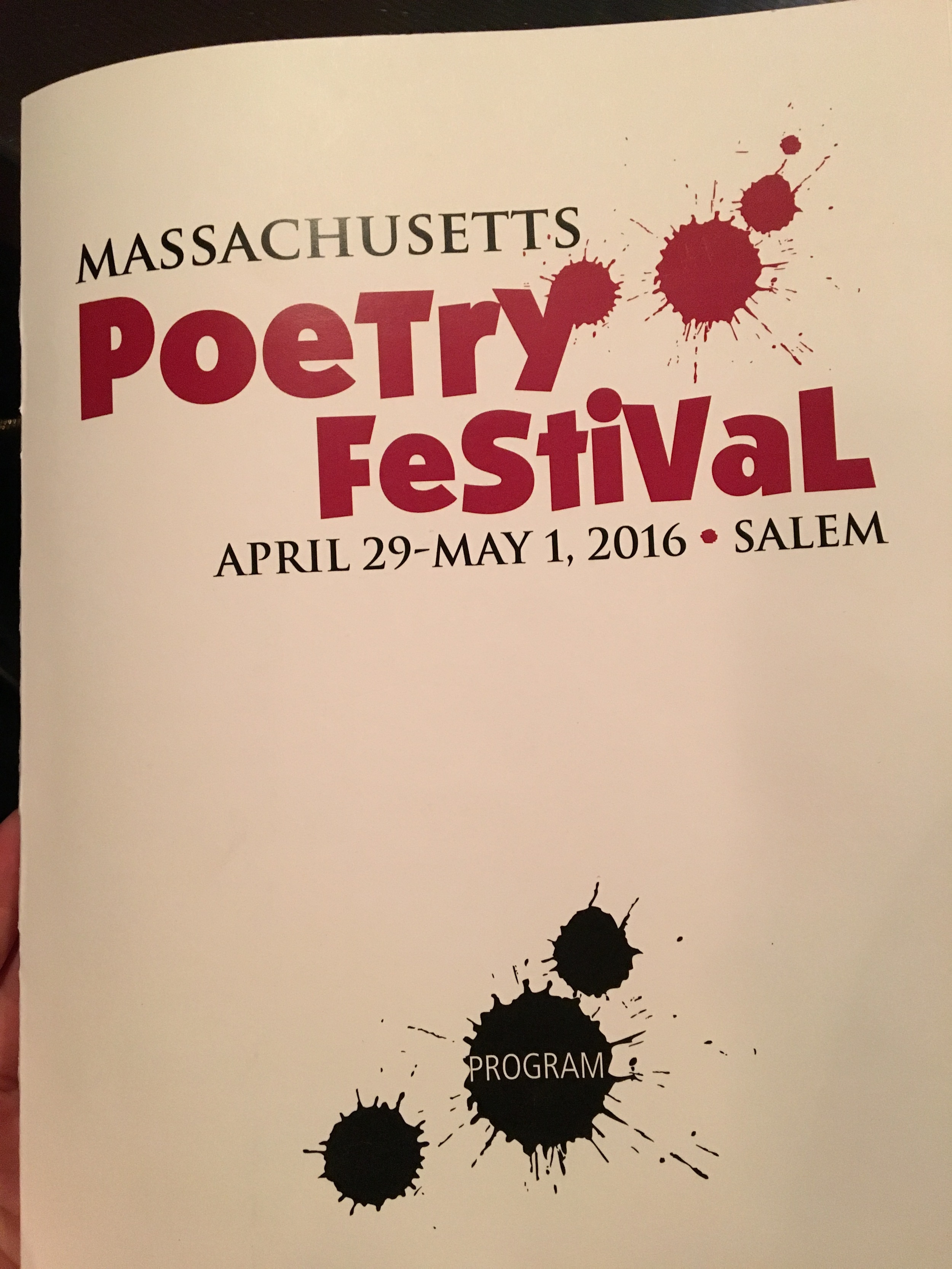

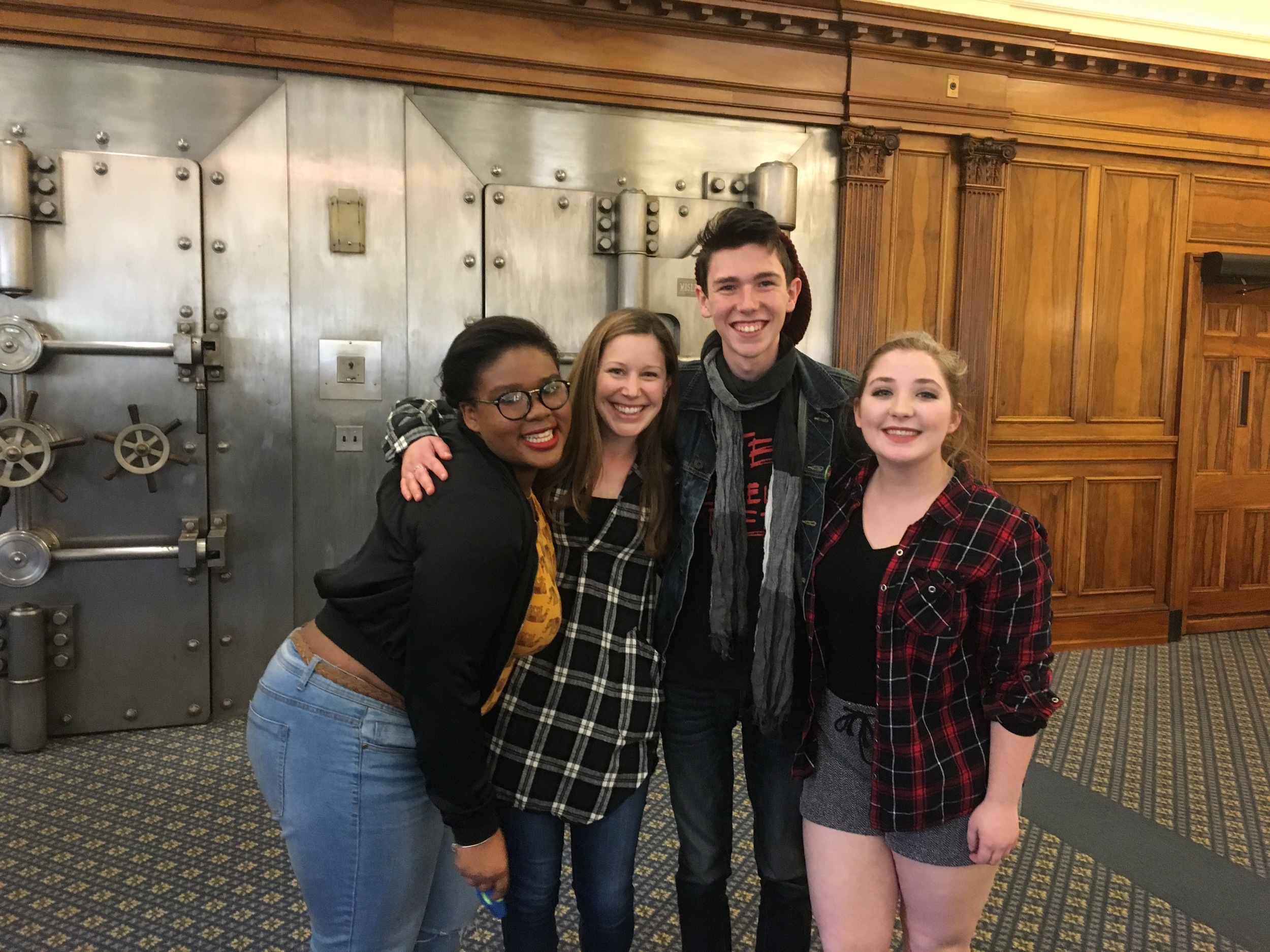
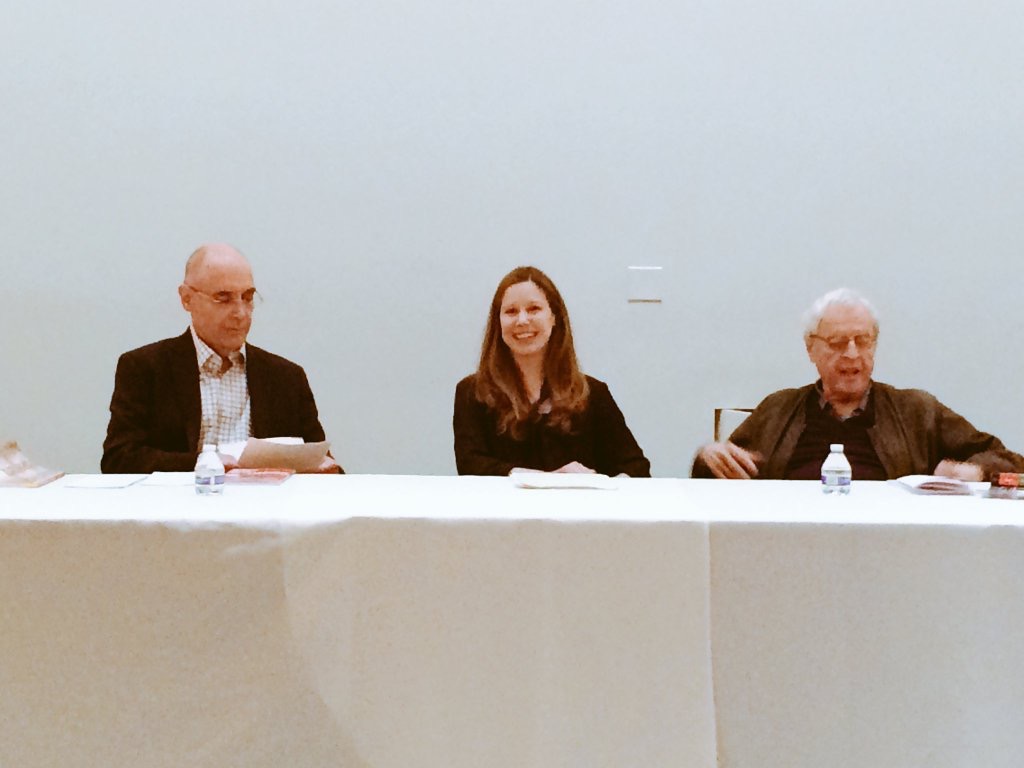
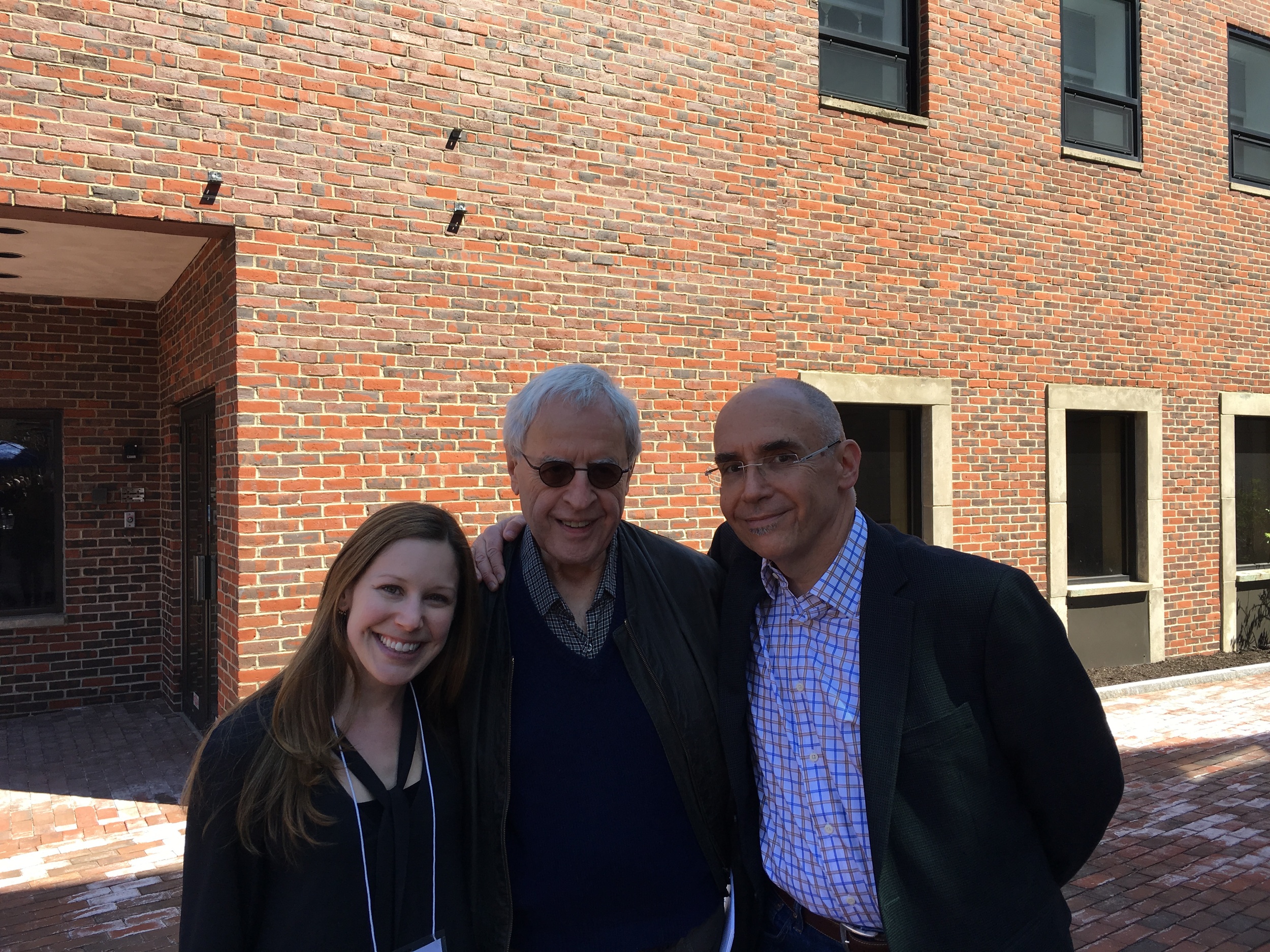
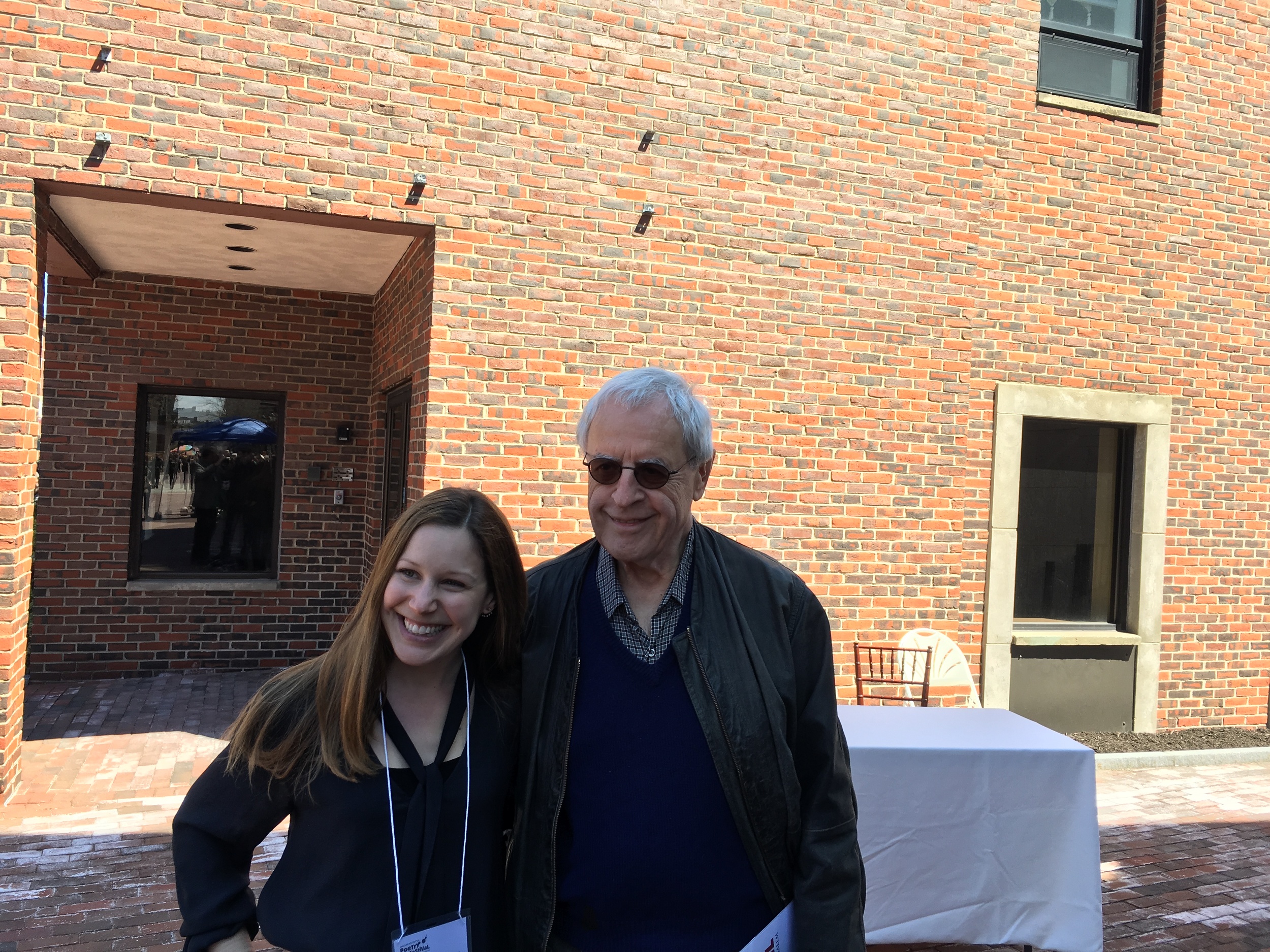
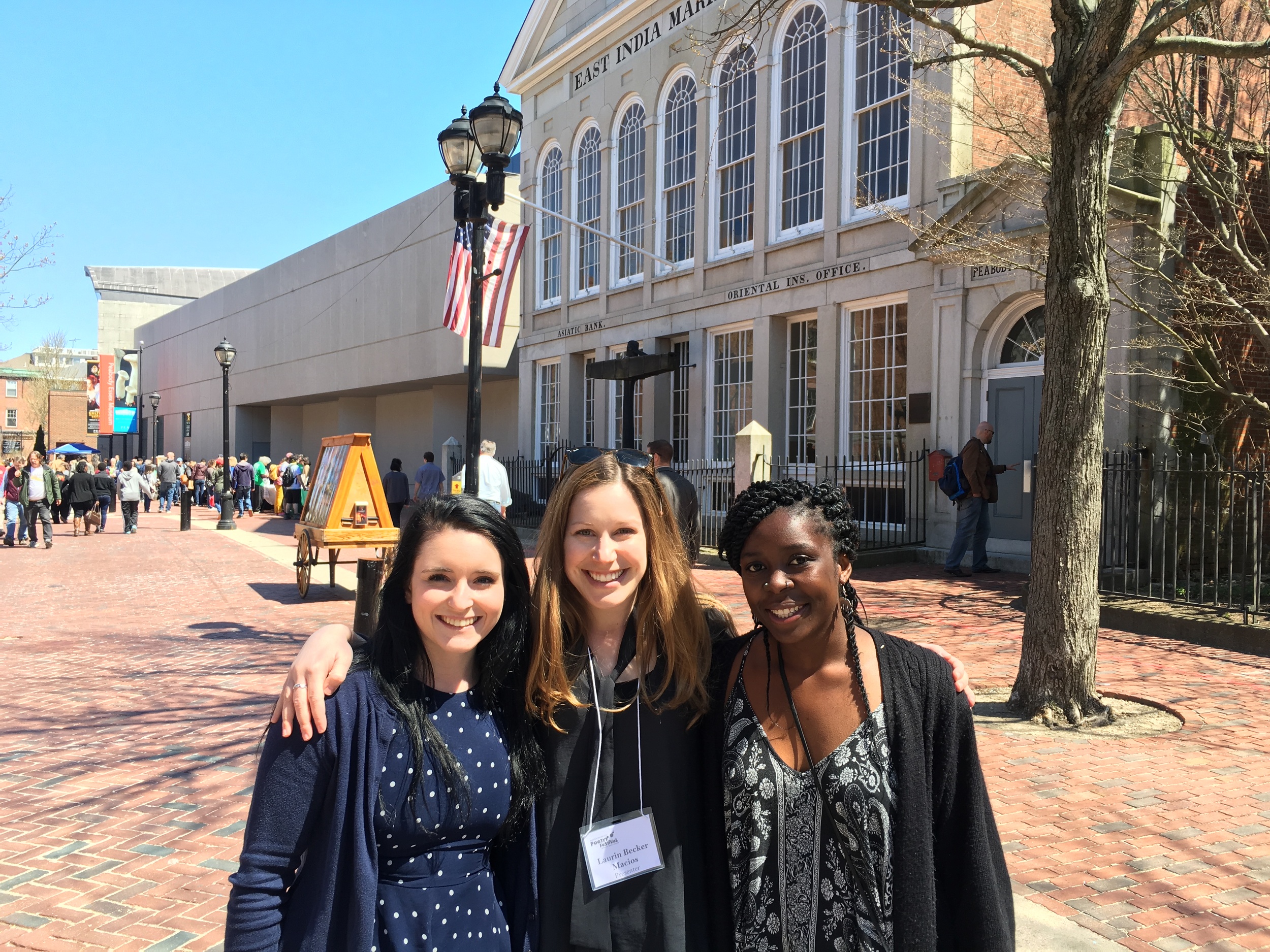
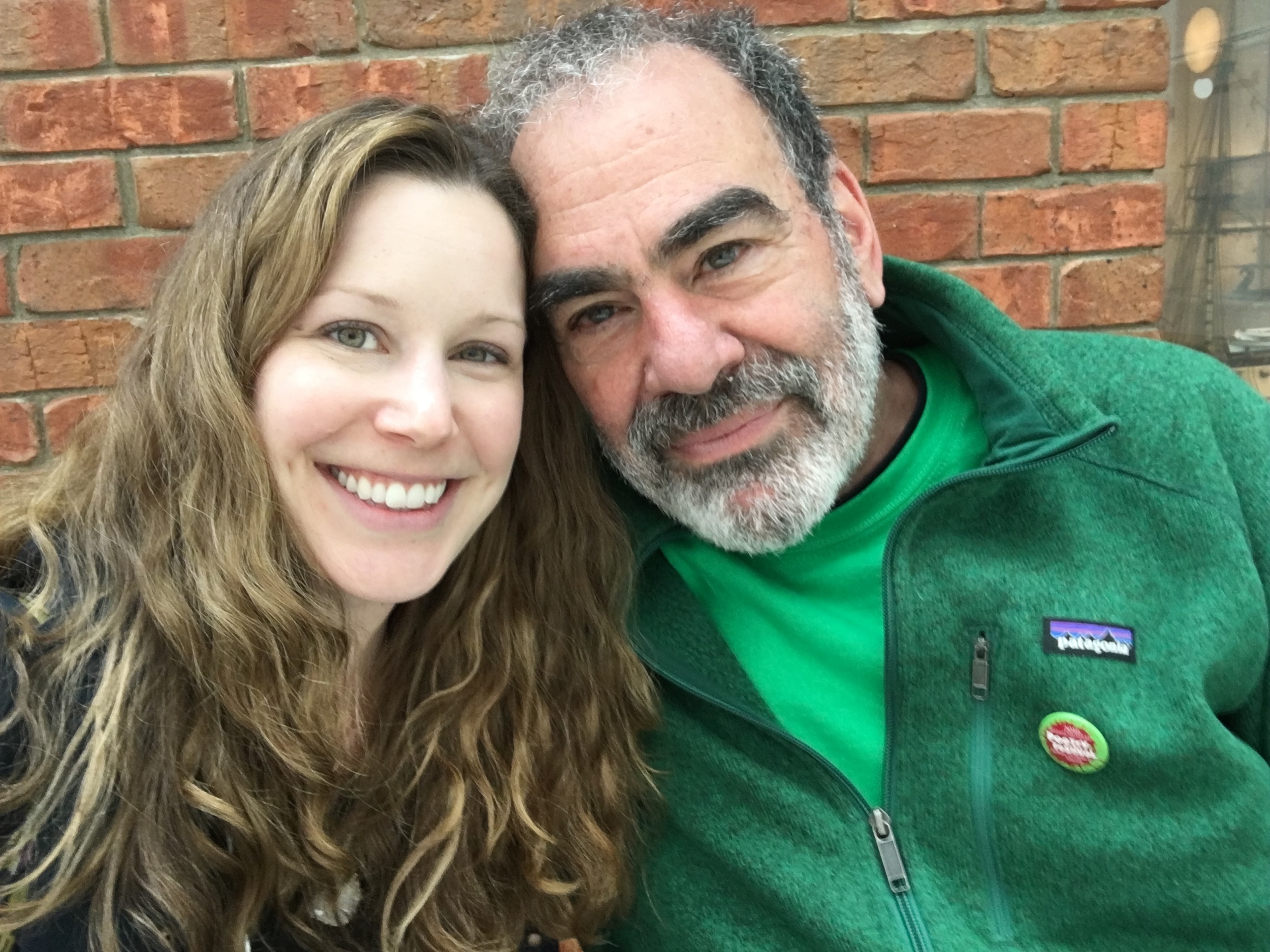
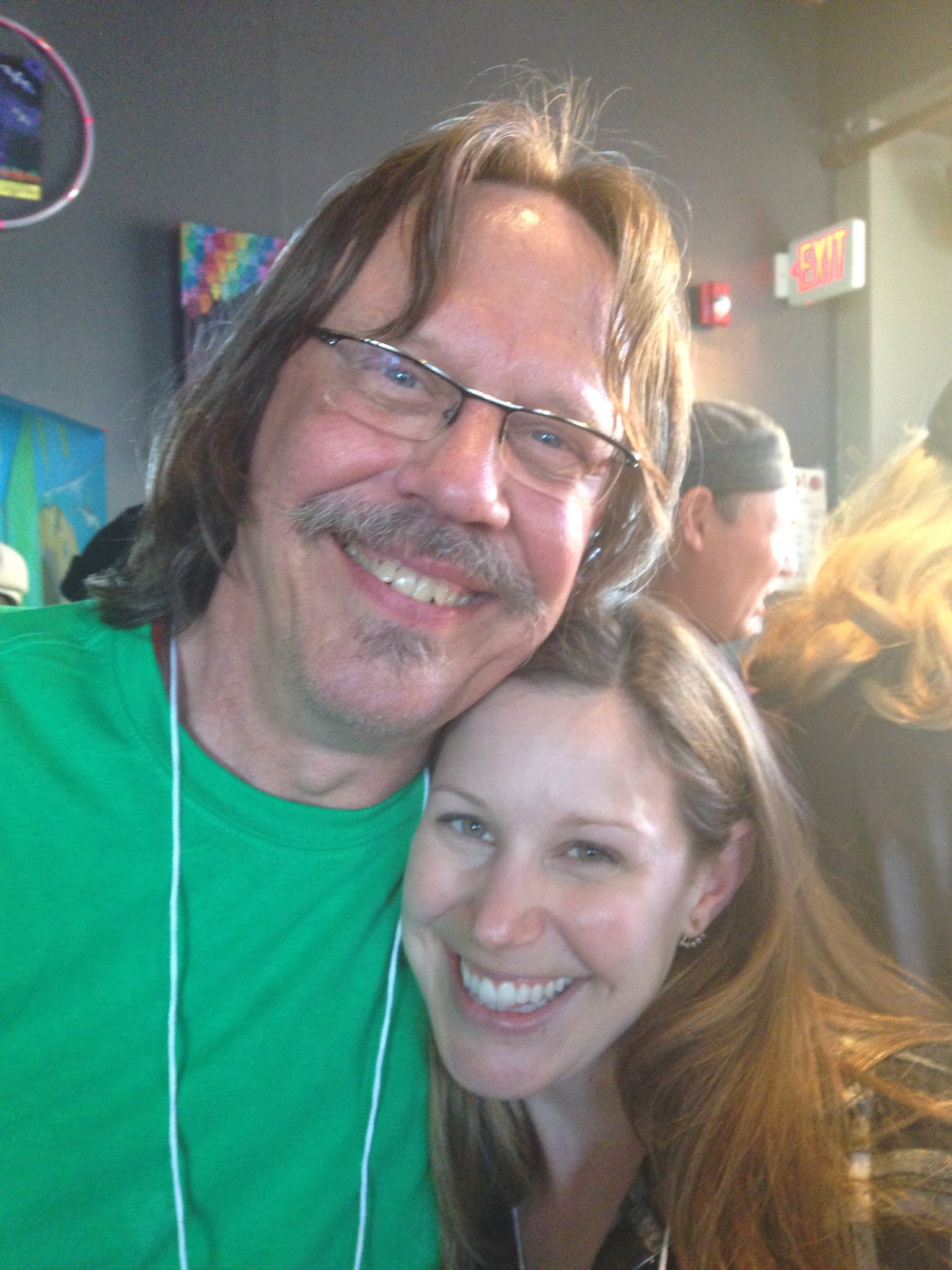
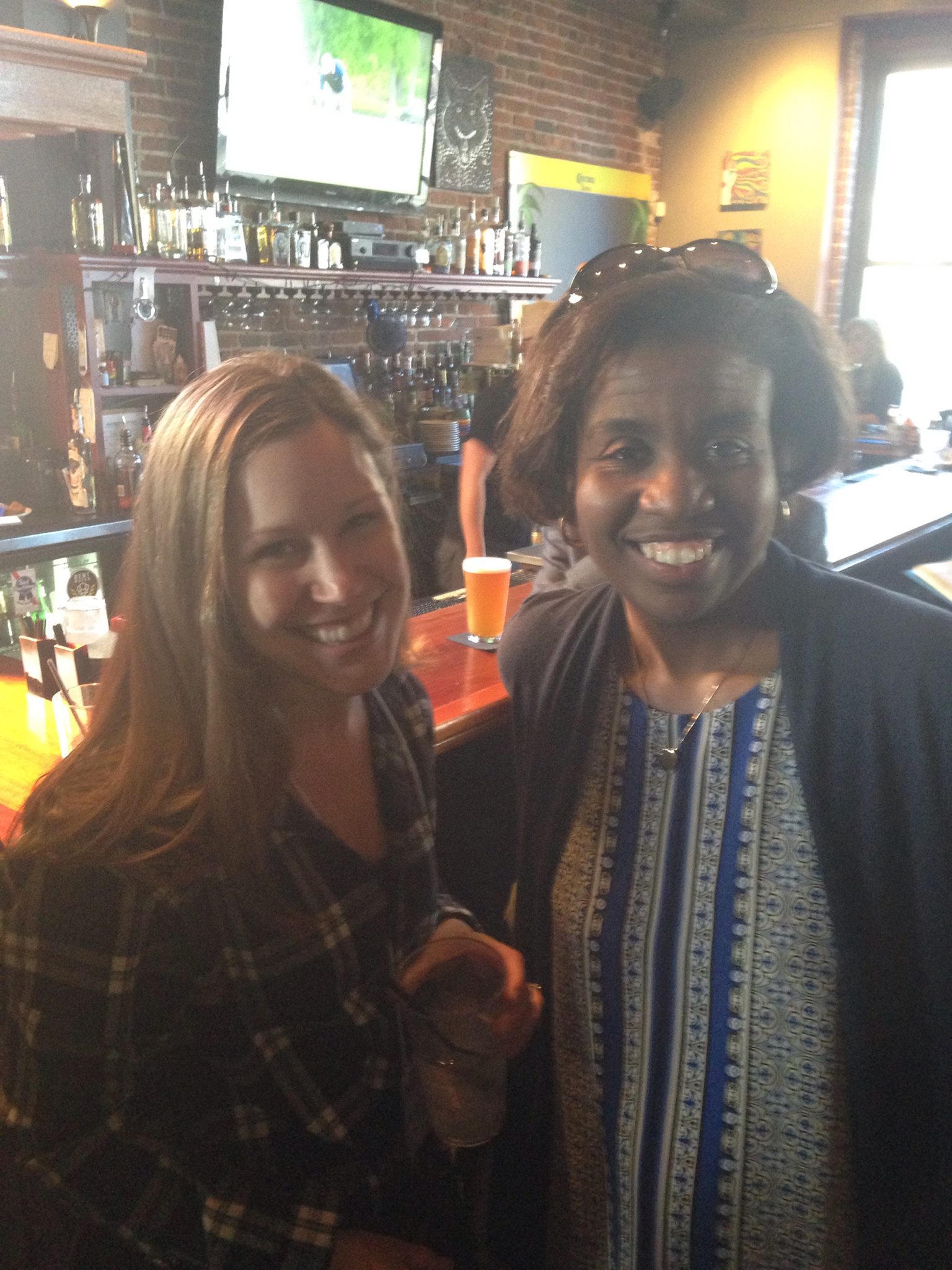
Poems by Heart
My parents just visited for my birthday and we talked a lot about memorizing poems. My dad is currently memorizing a handful, and while here, he memorized one of my favorite poems, "A Scrawl," by James Whitcomb Riley. It's the poem that ignited my love of poetry, and it's in Afterwhiles, a book given by my great-grandfather to my great-grandmother in 1900, when she was 15 and they were friends, not yet married. That book was on the bookshelf in our den as I grew up, and I was enamored with it, constantly pulling it from the shelf and reading the page it naturally opened to--page 63, to the love poem "A Scrawl."
Click to enlarge
I read that poem so many times I unknowingly memorized it by sixth grade, and it has always been with me. I love its music, and as a kid I always loved that it's doing what it says it cannot do, which is express the speaker's feelings. It was a hint early on that with a poem, you can say what you might not really know how to say. A few years ago, one of my best friends, Jane, read it at my wedding.
Click to enlarge; rings by Sparklegarden
Another poem I love and have memorized much of (not all! maybe one day...), is Walt Whitman's "Song of the Open Road," which I read constantly on my mostly-solo 17-country backpacking trip after college. It's a poem I still recite to myself when I'm stressed or feeling anxious, and for my 32nd birthday this past weekend, I had rings made that bear the first three words, which are sometimes all I need for a sense of calm to start flowing. "Afoot and lighthearted..." Just saying those words to myself, I already start to breathe a little more easily.
SONG OF THE OPEN ROAD
1.
Afoot and light-hearted I take to the open road,
Healthy, free, the world before me,
The long brown path before me leading wherever I choose.
Henceforth I ask not good-fortune, I myself am good-fortune,
Henceforth I whimper no more, postpone no more, need nothing,
Done with indoor complaints, libraries, querulous criticisms,
Strong and content I travel the open road.
The earth, that is sufficient,
I do not want the constellations any nearer,
I know they are very well where they are,
I know they suffice for those who belong to them.
(Still here I carry my old delicious burdens,
I carry them, men and women, I carry them with me wherever I go,
I swear it is impossible for me to get rid of them,
I am fill’d with them, and I will fill them in return.)
Read the full poem here and check out...
...this Dover edition of Whitman's Leaves of Grass for <$5
...this paperback edition of James Whitcomb Riley's Afterwhiles for <$10
...this New York Times article on memorizing poetry
...Sparklegarden on Etsy for [custom/poetry] jewelry
Louisa May Alcott, B.A.
Visiting Fruitlands, where the Alcott family lived for a time.
Today Book Riot posted this beauty to Instagram. If you know me, you know I love Louisa May Alcott. I find that not many people know much about her outside of the fact that she wrote Little Women. She was a fiercely independent, industrious badass who grew up constantly moving (about 30 times) and living under her intense father's idealist notions, (some of which are lovely, some a bit much) such as: working for pay is unethical; paying back loans is unnecessary; vegetarianism for life PLUS no root vegetables (as they grow in the opposite direction of heaven), no milk or butter (apparently thought to be aphrodisiacs), and no coffee, as they were staunch abolitionists and used nothing that was touched by slave labor. (They wore uniforms of linen; cotton was out, as was silk, which was “worm slaughter.”). They ate primarily apples and bread, and the effects of malnutrition stayed with Louisa her whole life. The family, thanks largely to that first notion mentioned, was incredibly poor. With the goal of lifting her family from poverty, Louisa trained herself to write on-demand and for any market, and taught herself to be ambidextrous so that she rarely had to rest. Her children's books are what brought in the most money, but they also bored her. She wrote thrillers under the pseudonym A.M. Barnard. She hated her fame, and didn’t like Concord much, either. She made fun of all of her fans who, like me, make the (repeat) pilgrimage to Concord to squee. (But us fans are independent broads too, and we feel no shame.) This is the briefest of summaries—she was also a nurse in the civil war, was part of the underground railroad, and more. Check out this phenomenal biography for more. // Visit The Orchard House in Concord. // Visit Fruitlands.
Reading DEAD MAN'S FLOAT
I've been reading Jim Harrison's new book Dead Man's Float in the mornings over the past week and it is one serious bulldozer.
...Saying that makes me look up "bulldozers." Wiki says bulldozers are "equipped at the rear with a claw-like device (known as a ripper) to loosen densely compacted materials." That's exactly it. Out of sharpness, maybe even roughness--plainspoken, no frills, no artful maneuvering--this book loosens me, shakes me up even, and I'm a little startled, in the best way, at how it seems to come out of nowhere. And if this book is a bulldozer, there are a few poems competing for the role of ripper. My favorite so far are these two -- "Zona" and "Seven in the Woods."


